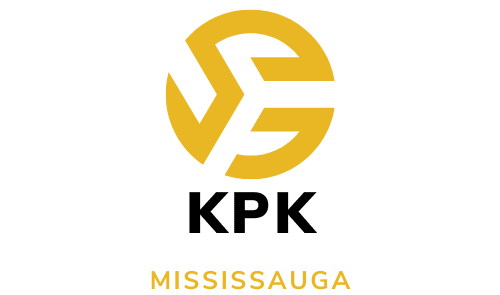The high stakes game of real estate involves a myriad of players: buyers, sellers, agents, and more. The ultimate win, however, belongs to those who can command the stage and deliver a sales pitch that not only dazzles but converts. Your ability to create a winning real estate sales pitch can be the deciding factor that separates you from your competitors. This article will arm you with the knowledge and strategies to create a potent sales pitch that will have your audience hooked, and your listings selling like hotcakes.
1. Understanding Your Audience
The core of every successful sales pitch lies in the understanding of the audience. In real estate, your audience can range from first-time homebuyers to seasoned property investors.
A découvrir également : The benefits and risks of offshore real estate investment
Tailoring your pitch to suit your audience’s needs will not only build rapport but also enhance your credibility. It is essential to understand your client’s goals, financial capacities, and property desires. For instance, a first-time homebuyer might be more interested in the safety of the neighborhood, proximity to amenities, and financing options. On the other hand, a property investor might be more concerned with the rental yield and potential capital appreciation of the property.
To understand your audience, engage in open conversations with them. Ask relevant questions and actively listen to their answers. Your ability to cater to your audience’s needs directly impacts your sales success.
Sujet a lire : How to build a real estate brand that stands out
2. Structuring Your Sales Pitch
The structure of your pitch is as important as the content. A well-structured pitch will be more compelling and easier to follow.
Start your pitch by stating a compelling fact or statistic about your listing or the real estate market. This will immediately capture your audience’s attention and set the tone for the rest of your presentation.
Next, establish a problem or a need that your prospect might have. This will make your pitch relatable and create a sense of urgency. Then, introduce your property as the solution to this problem. Explain how your estate will meet or exceed their needs.
Include testimonials or success stories to further boost your credibility. A proven track record can be a powerful tool in convincing your audience that they will be making the right choice by choosing you as their real estate agent.
3. Leveraging Technology in Your Pitch
Modern technology has revolutionized the way we do business. In real estate, it can be a game-changer in your sales pitch.
Virtual tours, drone footage, and augmented reality can give your clients an immersive experience of the property. This can be particularly useful when dealing with clients who are unable to visit the property in person.
Furthermore, data visualization tools can help to present market trends and property statistics in an engaging and easy-to-understand format. This will help your client to make informed decisions, further enhancing your credibility as an agent.
Don’t forget about the power of social media. Platforms like Instagram, Facebook, and LinkedIn can be used to share your listings, client testimonials, and industry knowledge.
4. The Art of the Elevator Pitch
While a detailed sales pitch is crucial, there will be times when you only have a short window to grab your prospect’s attention. This is where the elevator pitch comes in.
An elevator pitch is a concise, captivating overview of your offering, delivered in the time it takes to ride an elevator. In real estate, your elevator pitch could be about a specific listing, your services as an agent, or your unique selling proposition.
The key to a great elevator pitch is to keep it brief, clear, and engaging. It should create an emotional connection with your audience, compelling them to want to hear more.
5. Continual Learning and Improvement
The real estate market is constantly evolving. As such, your sales pitch should also be dynamic and adaptable.
Keep abreast with current market trends and shifts. Attend industry seminars and workshops. Network with other real estate professionals to exchange ideas and learn from their experiences.
Feedback is another crucial aspect of improvement. After each sales pitch or client meeting, take the time to reflect on what worked and what didn’t. Seek feedback from your clients and colleagues. Use this feedback to refine your pitch and hone your presentation skills.
Remember, a successful agent is not one who gets it right all the time, but one who learns from their mistakes and constantly strives to improve.
In summary, a winning real estate sales pitch involves understanding your audience, structuring your pitch, leveraging technology, mastering the elevator pitch, and committing to continual learning and improvement. By implementing these strategies, you will be well on your way to becoming a top-performing real estate agent.
6. Master the Art of Cold Calling
In the competitive world of real estate, mastering the art of cold calling can provide you with a significant edge over your competitors. Cold calling refers to the process of contacting potential clients who have not previously expressed an interest in your services. Although it can be daunting, a well-executed cold call can lead to valuable connections and sales opportunities.
To conduct a successful cold call, you should first research the potential client. This could involve understanding their property interests, financial situation, and any pain points they may be experiencing. This knowledge will help you to tailor your pitch, making it more relevant and compelling for the listener.
When you make the call, be sure to introduce yourself and your product or service clearly. Remember, the aim of the call is not to close a sale immediately, but to pique the client’s interest and establish a relationship.
Furthermore, be prepared to handle objections. It’s not uncommon for people to be skeptical or uninterested during a cold call. However, if you can address their concerns effectively, you could turn a skeptical listener into an interested prospect.
Lastly, end the call with a call to action. This could be scheduling a follow-up call, sending them more information about a listing, or arranging a meeting.
By making cold calling a part of your strategy, you can expand your network, increase your visibility, and potentially gain new clients.
7. Delivering a Visually Engaging Listing Presentation
When pitching a property to potential clients, a well-crafted listing presentation can be an extremely powerful tool. This presentation is a visual demonstration that outlines the features and benefits of the property you’re selling.
To create an engaging listing presentation, start by including high-quality photos of the property. These images should highlight the property’s best features and give the client a clear visual understanding of what you’re offering.
Next, consider using charts or graphs to illustrate key information, such as property appreciation rates, neighborhood demographics, or market trends. This visual data can help to simplify complex information, making it easier for your clients to understand.
Testimonials or reviews from previous clients can also add credibility to your presentation. These can be particularly effective if they’re relevant to the client’s needs or concerns.
Finally, ensure your presentation has a clear structure and flow. It should tell a story – starting with establishing the client’s needs, introducing the property as the solution, and ending with a compelling call to action.
A visually engaging listing presentation can significantly enhance your sales pitch, making it more memorable and persuasive.
Conclusion
In the fast-paced realm of real estate, delivering a winning sales pitch is crucial. From understanding your audience and structuring your sales pitch, to leveraging technology and mastering the elevator pitch, each aspect plays a pivotal role in your success as a real estate agent. Additionally, cold calling and creating engaging listing presentations can further enhance your ability to attract and convert potential clients.
Continual learning and improvement should be at the heart of your sales strategy. The real estate market is continuously evolving, and so too should your pitch. Remember, the key to a winning sales pitch is not only about what you say but how you say it. By implementing these strategies and adapting to the ever-changing real estate landscape, you’re sure to stand out from the crowd and excel in your real estate career.











